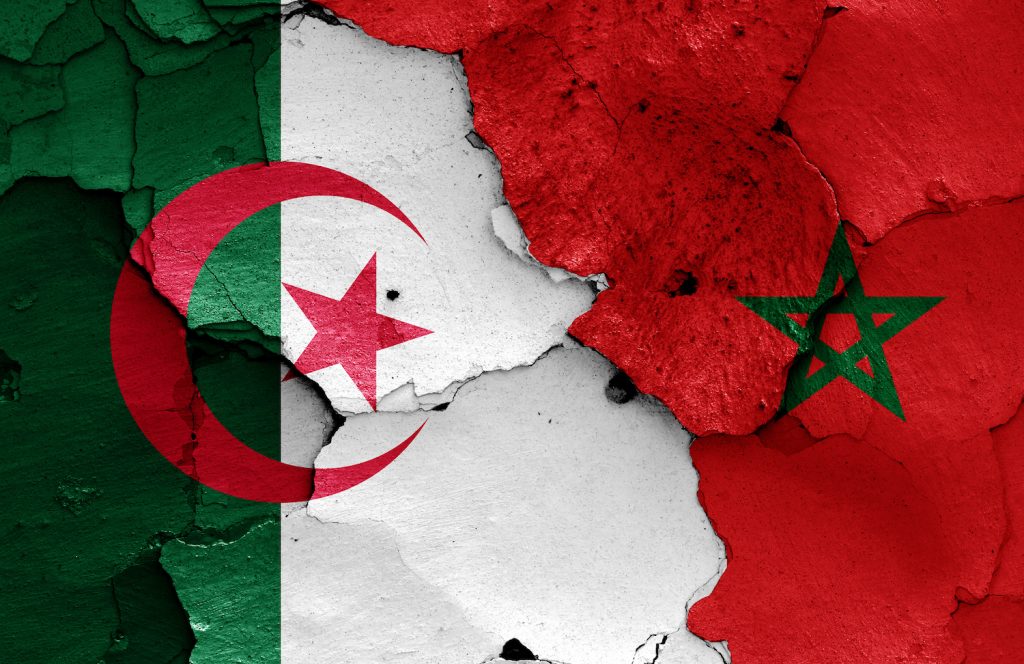Tensions between neighboring Algeria and Morocco have been escalating for a year, rooted in a longstanding dispute over the Western Sahara territory, a former Spanish colony. Algeria has been supporting the local Polisario Front, an ethnic Sahrawi group that seeks independence for the region. Last November, then-president Donald Trump recognized Morocco’s claim over the phosphate-rich region in exchange for the Rabat government’s normalization of relations with Israel. Since then, ambassadors have been recalled, borders closed, airspaces have been blocked, and there have been accusations from both sides about sparking forest fires. Early this week, three Algerian truck drivers were killed in a bombing on the border — and the government of Algerian president Abdelmadjid Tebboune blamed Morocco, which denies any involvement. “Their killings will not go unpublished,” declared Tebboune.
* * *
In the face of ever-growing strife between the Algerian regime and the Moroccan monarchy, the workers and oppressed of the two countries must follow a path independent of the national bourgeoisies — and, in fact, that seeks to go beyond them. The ruling classes of both countries are at the end of their ropes. They face internal crises — political, economic, social, health — that are undermining their interests and thwarting their unpopular neoliberal policies. They are trying to channel aspirations for national sovereignty as mechanisms to consolidate national unity. They use chauvinism to drown out the discontent of the most oppressed, and to increase their respective influence in the region.
This competition can be explained in part by the decline of U.S. hegemony, as America struggles to play the role of the world’s policeman and refocuses its attention and forces on its competition with China. It also flows from the increasing marginalization of French imperialism among the world’s powers, as illustrated by the termination of the submarine contract with Australia. The reduction of French military personnel in the Sahel and the withdrawal of U.S. troops from Afghanistan has opened space for competition between regional powers, particularly when it comes to subcontracting the fight against terrorism. For that, each regime relies on allies — the Zionist Israeli state for the Moroccan monarchy, and Russia for the Algerian regime. The competition also extends to other areas, such as attracting foreign direct investment — which is based on lowering wages and undermining the democratic and social rights of workers and the oppressed, which explains the increasing authoritarianism of the two regimes.
The proletariat of both countries have nothing to gain from these escalations and this conflict. They will be cannon fodder if the crisis worsens. The political approach to the national sovereignty issue must be, above all, regional solidarity among all the oppressed, self-organization to defend democratic rights and freedoms, freedom for all political prisoners, independence of the trade unions, and the election of s sovereign constituent assembly in both countries by committees of the workers and oppressed that adopts a resolutely anti-imperialist and anti-capitalist perspective. In other words, a wholesale rejection of the liberal, authoritarian, and pro-imperialist policies orchestrated by the two regimes!
As the revolutionary Georg Büchner famously wrote in an 1834 pamphlet, “Peace to the cottages! War on the palaces!”
First published in French on November 5 in Révolution Permanente.
Translation by Scott Cooper










